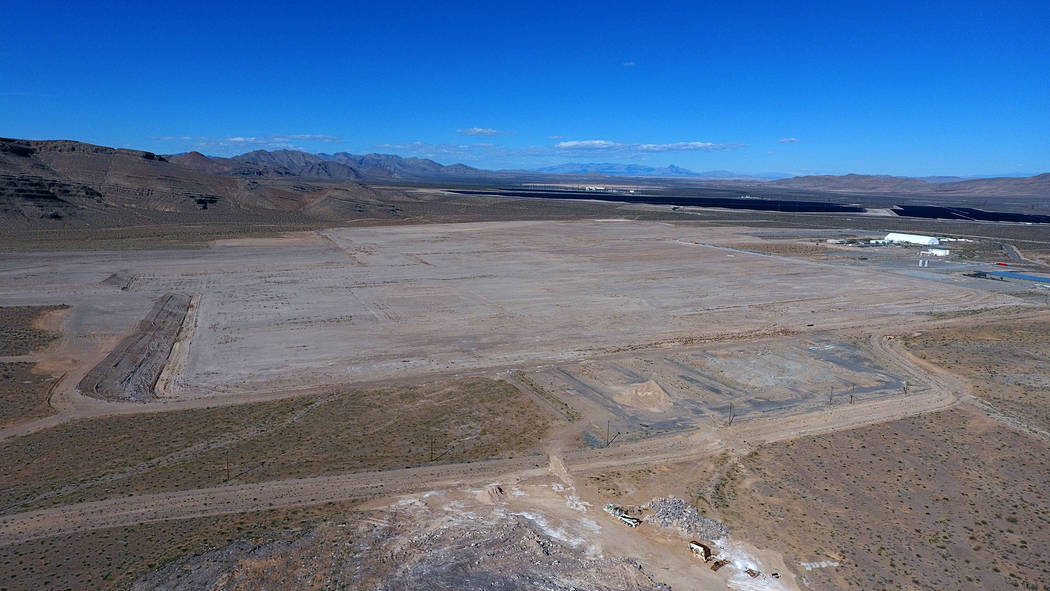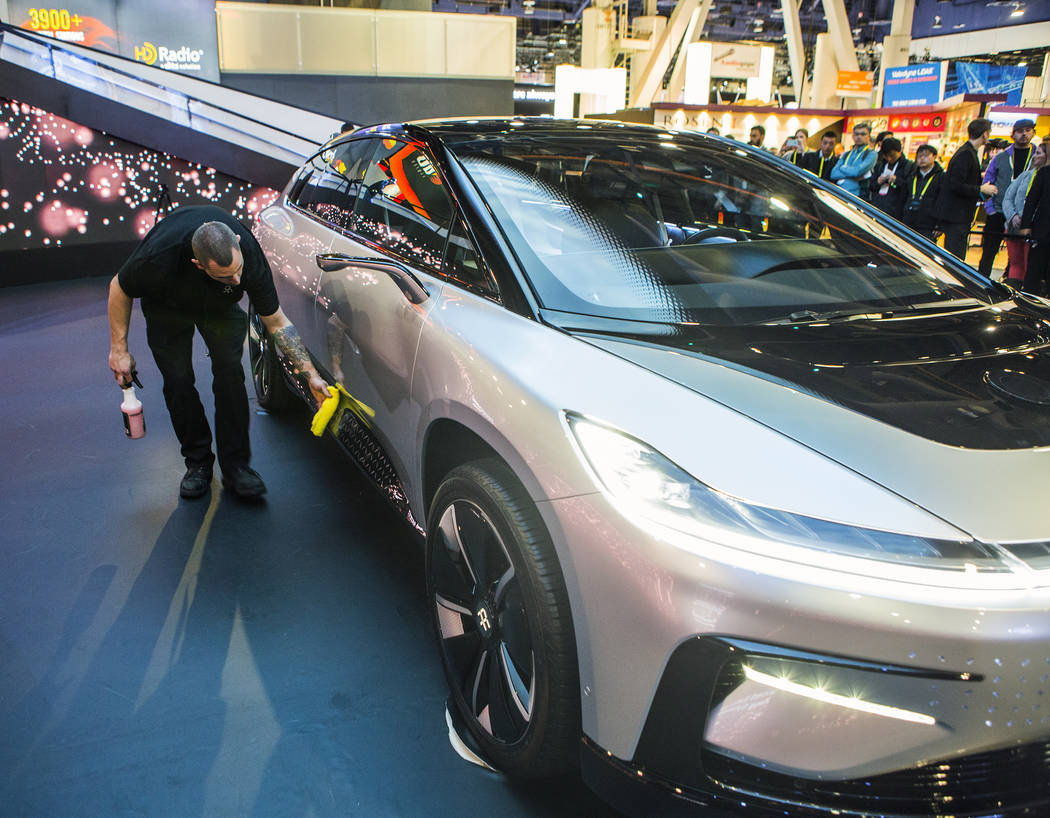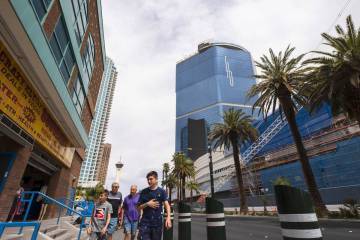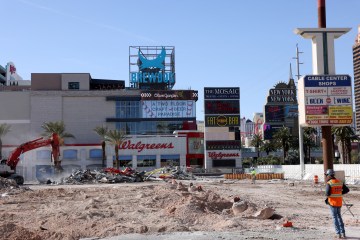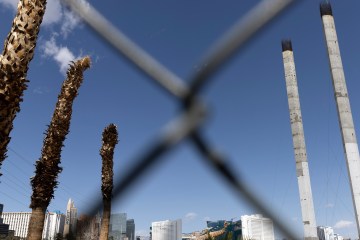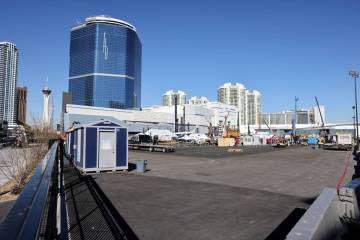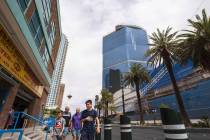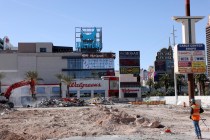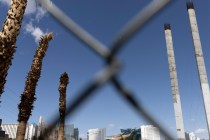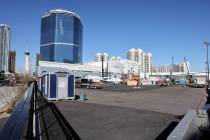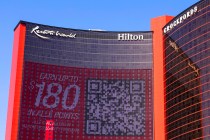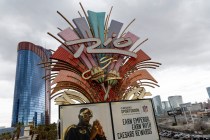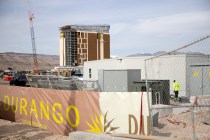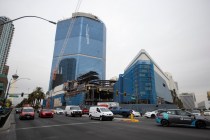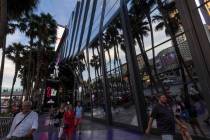Faraday Future trying to sell 900+ acres of North Las Vegas land
Faraday Future is trying to sell more than 900 acres of land at Apex Industrial Park, offering up the site where it bailed on building an auto plant.
But will it find a buyer?
The startup electric car maker, whose never-built factory was a black eye for Nevada lawmakers, announced March 13 that it wanted to sell the North Las Vegas project site, some 30 miles northeast of the Strip near the Interstate 15-U.S. Highway 93 interchange.
The listing — 913 acres for $40 million — came nearly two years after Faraday scrapped the $1.3 billion project and more than three years after the Legislature approved a $335 million incentive package for the much-hyped car plant.
Faraday has found at least one buyer before. It reached a deal by late last year to sell the land for an undisclosed sum to New York investment firm Stonehill Capital Management, county records show, but the deal never closed.
Still, it faces hefty competition from other sellers in and around Apex who are offering smaller, easier-to-digest parcels — all in an area, no less, that has plodded along for years with little development.
Besides Faraday’s property, at least 2,000 acres of land, spread among nine listings that range from almost 100 acres to 420 acres each, are up for sale in the Apex area, as seen on listing site LoopNet.
‘Massive parcel’
Faraday almost surely has a smaller pool of potential buyers than other industrial-land sellers in the valley. If you only need 30 or 50 acres for a project, why buy 900?
“I don’t know of any developers that would take down a site that big. … It’s just a massive parcel,” said MDL Group broker Jarrad Katz, an industrial-property specialist.
On top of that, Apex is a decades-old, desert industrial park that builders have largely avoided amid a shortage of utility service.
Colliers International broker Dan Doherty, an industrial specialist, said he would love to see a land developer buy Faraday’s site and put in roads and other infrastructure. But given Apex’s history of land sales and little construction, he figures a speculator will pick it up instead.
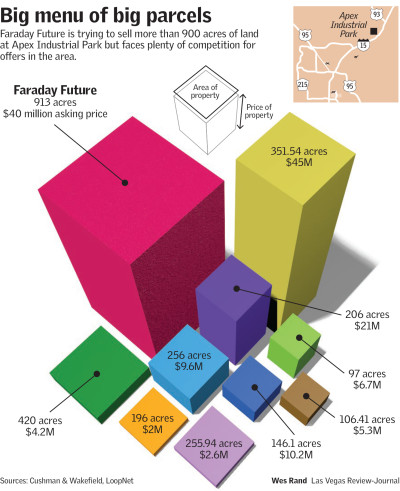
Apex, he noted, has been around for years but remains “mostly vacant.”
“It’s always just been a back-and-forth land flip,” Doherty said of the industrial park.
More utility service is on the way. North Las Vegas and private landowners teamed up last year to start building a 12-mile surface water pipeline to Apex, and a 750,000-gallon elevated water tank is also in the works.
Last summer, when city officials announced that the pipeline’s groundbreaking ceremony was held, the news release declared: “Decades-old problem solved: Water coming to North Las Vegas’ Apex Industrial Park.”
The Nevada Department of Transportation also recently finished a $63.4 million project that overhauled the I-15-U.S. 93 interchange and widened a 5-mile stretch of U.S. 93, NDOT spokesman Tony Illia said.
Legislature love
State lawmakers approved Faraday’s incentive package at a special session in December 2015, though the company’s ownership was largely shrouded in secrecy at the time, it didn’t have a publicly identified CEO, and it hadn’t started selling cars.
Faraday bought 930 acres at Apex in 2016 for around $29.4 million, property records showed, and broke ground on the project that year. Its total acreage is now lower because it sold and traded some land, listing broker Danielle Steffen of Cushman & Wakefield said earlier this month.
The startup planned to build a 3.4 million-square-foot plant that could produce up to 150,000 electric vehicles annually, state records show. But construction stalled amid reports of financial troubles, and Faraday bailed on the project in July 2017, saying it wanted an existing facility instead.
The next month, it reportedly leased a 1 million-square-foot former tire plant in central California.
Faraday’s failure-to-build hopefully won’t be forgotten, especially if state legislators want to roll out the red carpet for an unproven company again. But for now, Faraday can’t fully exit Southern Nevada until it sells its land.
Assuming, of course, someone wants it.
Contact Eli Segall at esegall@reviewjournal.com or 702-383-0342. Follow @eli_segall on Twitter.



